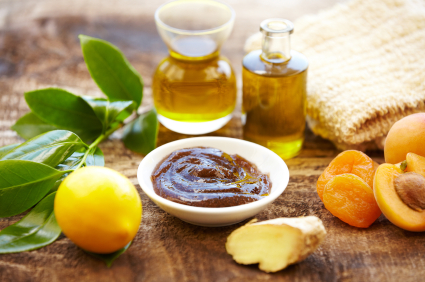

The word Pharmacognosy is derived from two Greek words, ‘Pharmakon’ meaning ‘drug’ and ‘gnosis’ meaning ‘knowledge’. Therefore, Pharmacognosy literally means knowledge of drugs. Pharmacognosy is one of the important branches of pharmacy.
It deals with “ the study of structural, physical, chemical and sensory characters of crude drugs of animal, vegetable and mineral origin and includes their history, cultivation, collection, storage and use.“ From a nonprofessional’s point of view, Pharmacognosy is nothing but medicinal botany.
Though the term Pharmacognosy is a modern one, the knowledge of medicinal plants and their uses are as old as humankind is. It has developed from ancient civilizations, where plants or plants parts have been used to cure human diseases / disorders.
The healing power of certain herbs and plant parts such as leaves, barks, roots etc. were undoubtedly discovered by accident, but once discovered, knowledge of drugs was passed on from generation to generation.
Nowadays, people are increasingly turning to indigenous systems of medicine, which are holistic and not only treat diseases but also prevent them. Further, they are free from side effects.
With the rising popularity of traditional systems of medicine, there is a growing demand for professionals in this field. In order to become a medical practitioner in Indian system of medicine, a formal education is mandatory.
Eligibility Criteria
An aspirant of Pharmacognosy should first complete his/her bachelor degree in Pharmacy then go for M.Pharm in Pharmacognosy. The student should be 10+2 with science subjects to be able to pursue B.Pharma. After B.Pharma, he/she can take admission in M.Pharma.
Some of the Indian systems of medicine offer specialization in Pharmacognosy at postgraduate level e.g. M. D. Ayurveda in Dravyaguna and also offer research programmes in Pharmacognosy.
One can also pursue a Diploma course in Pharmacy before taking admission in B.Pharma. Though, pharmacognosy is taught in D. Pharma. and B.Pharma as a subject, one can get specialization in pharmacognosy only at the postgraduate level, M. Pharma. and, thereafter in doctoral / post–doctoral studies. About eight specializations are offered in M. Pharm., of which pharmacognosy is the one.
Pharmacognosy Job Prospects
One can become a medical practitioner in Indian system of medicines. Government of India appoints Doctors from Indian system of Medicines under the aegis of AYUSH (Ayurveda, Yoga & Naturopathy, Unani, Siddha and Homeopathy). Various State Governments also appoint Doctors in the respective states in the department of AYUSH from time to time.
After completing Masters in Pharmacognosy, one can pursue Ph.D. and take up a career in teaching in colleges and universities.
These days many pharmaceutical Companies offer excellent job avenues for this field in their Research and Development wings.
Government of India also holds a promise for job in the R&D section of AYUSH.
Top Colleges For M.Pharm (Pharmacognosy)
Bundelkhand University
Course Offered: M.Pharm (Pharmacognosy) – 2 years
College of Pharmaceutical Sciences, Manipal
Course Offered: M.Pharm (Pharmacognosy) – 2 years
Poona College of Pharmacy
Course Offered: M.Pharm (Pharmacognosy) – 2 years
Jamia Hamdard, New Delhi
Course Offered: M.Pharm (Pharmacognosy) – 2 years
National Institute of Pharmaceutical Education and Research (NIPER)
Course Offered: M.Pharm (Pharmacognosy) – 2 years
List of Pharmacy Colleges in various states and cities of India
Pharmacy Colleges in Major Cities
Pharmacy Colleges in Various States
- Mizoram

Latest
Articles
CBSE Compartment Result 2023 OUT: Click For Direct Link
Home CBSE Compartment Result 2023 OUT: Click For Direct Link The CBSE 10th Compartment Result 2023 is expected to be
IIT Roorkee Launches Professional Certification Program in Product Management
Home IIT Roorkee Launches Professional Certification Program in Product Management The fees five-month long programme is for Rs 1,40,000 +
Join Our Whatsapp Community
Lorem ipsum dolor sit amet, consectetur adipisicing elit, sed do eiusmod tempor incididunt ut labore et dolore magna aliqua. Ut enim ad minim veniam, quis nostrud








